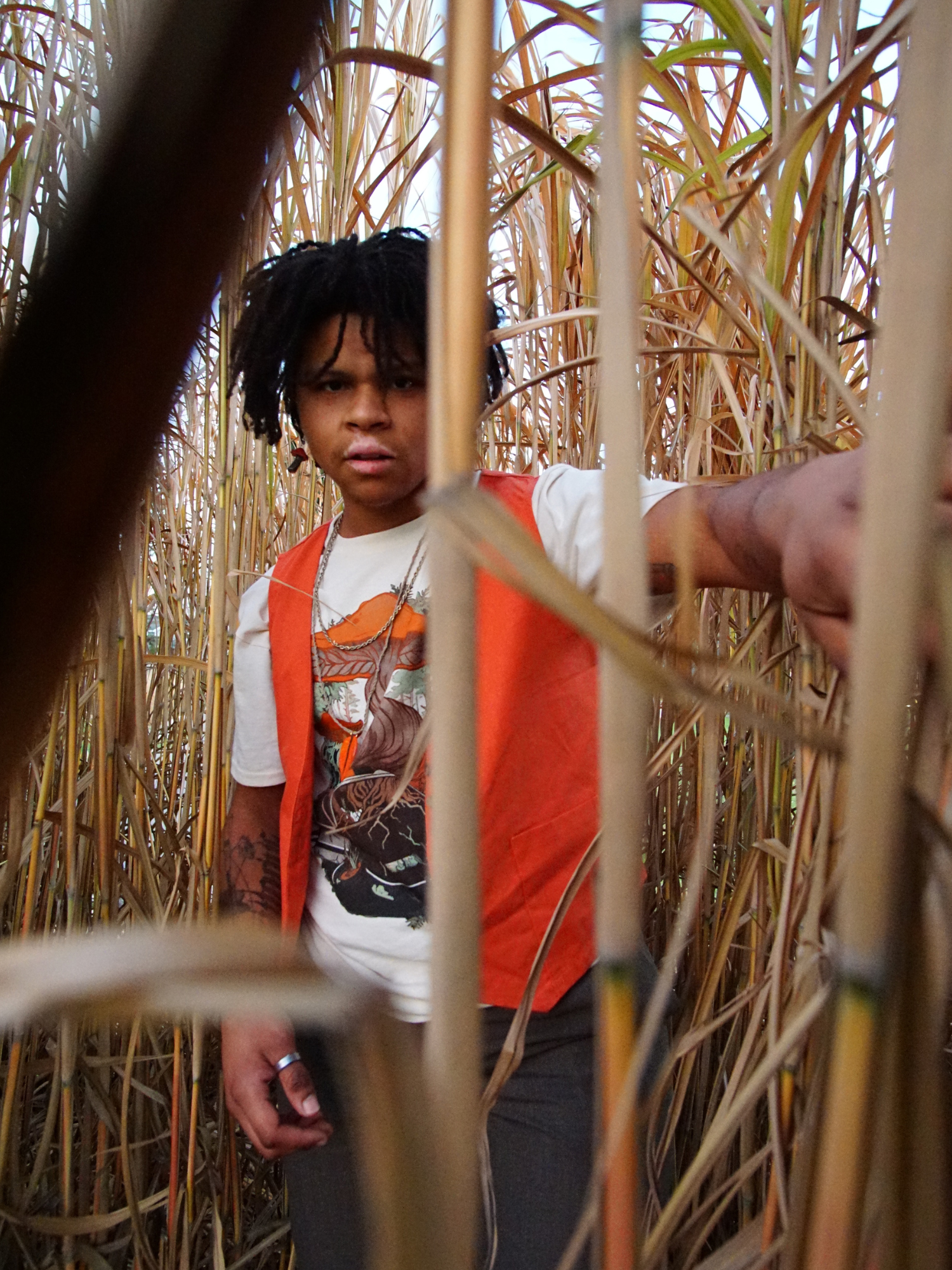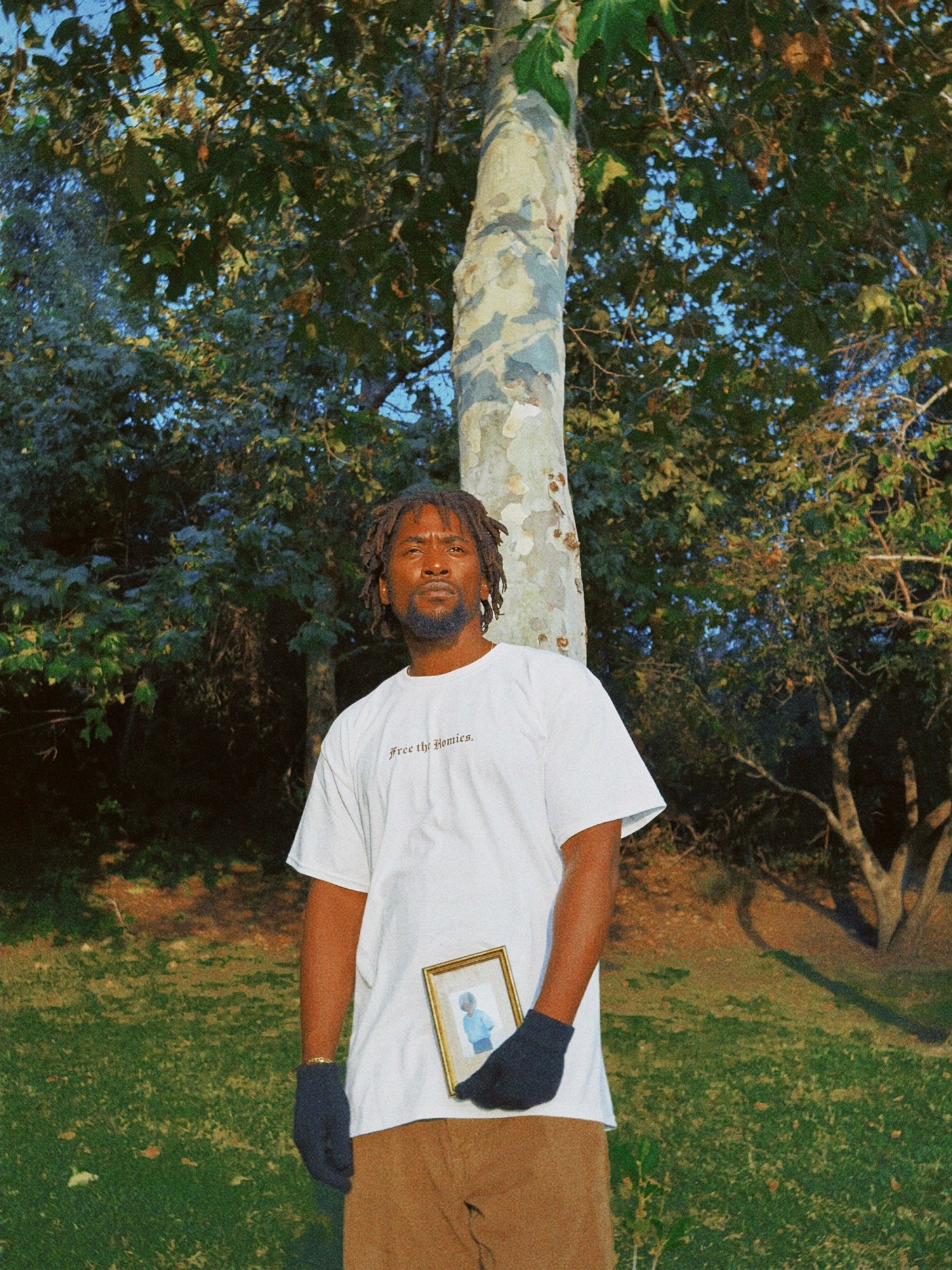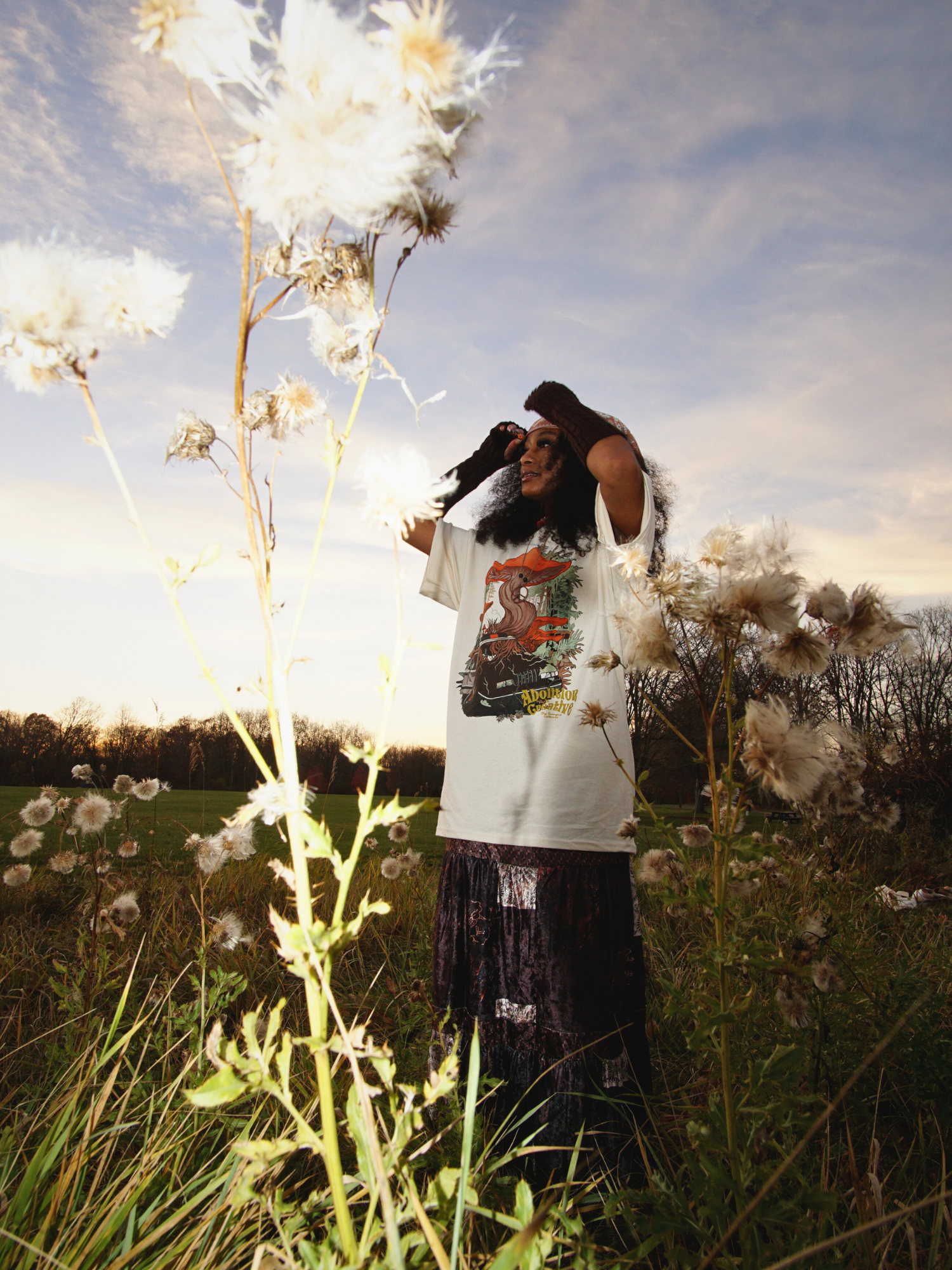Richie Reseda wears many hats. One, co-founder of Success Stories, the program providing a 12-week feminist curriculum to folks who have committed or survived harm (spotlighted in the CNN film The Feminist on Cellblock Y in 2018); another, mentee of Patrisse Cullors, co-founder of the Black Lives Matter movement. These hats culminate in his platform as an influencer who often and openly speaks about his commitment to abolition, the movement to replace our punitive criminal legal system that currently incarcerates nearly 2 million people with trauma-informed approaches that center healing, community, and repairing harm without chains, metal bars, deplorable wages, costly communication, food devoid of nutrition, and more.
If you have stumbled upon Richie, you have likely discovered For Everyone Collective, an incarcerated worker-owned brand where he serves as Creative and Political Director to combine abolition-messaged apparel and accessories with community organizing. Unlike so-called “mission conscious” fashion entities, For Everyone is what Richie refers to as a “cultural organizing project.”

Soon after their launch in 2018, and at the time known as Forgive Everyone, the Michigan-based group approached Richie in the hopes of collaborating. Richie was barely a week out of prison and didn’t have the capacity; but, a year and a half later, he got a call from Jazz Brown, his friend and cellmate of four years who had come home after 39 years incarcerated. When Jazz mentioned his hope to return to Grand Rapids, Michigan, a lightbulb went off. Richie successfully supported Jazz in securing employment with For Everyone and returned to their initial prospect of joining forces in some way. Since his release, he had launched Question Culture, a music production and creative agency focused on the voices of folks impacted by incarceration. Fueled by similar principles, the two entities officially penned their partnership in January of 2021 and, over the past two years, have created a blueprint for an abolitionist, anti-capitalist brand that employs and empowers those who have a history with the criminal legal system —from screen printers to graphic designers. In Richie’s words, “when we make a shirt that says, ‘the death penalty kills people,’ the models we hire to market it are also impacted by the death penalty.”
Whether it’s the “How Did a Plant Become Illegal” T-shirt — a recent collaboration with the Last Prisoner Project — or their Free Angela [Davis] tote, every design has a story. Their latest series riffs off of their initial “Abolition is Creative” design, a line of products featuring a cop car overgrown by grass and leaves to demonstrate “that this old world is not serving us; that nature, something based in connection, is growing over it,” Richie shares. At the initial launch, the team created a video series inspired by interviews they hosted in four key cities asking how people take care of themselves in the face of incarceration and state violence. In the coming months, they’re expanding the line to include other impacted graphic designers’ takes on what Richie calls an “abolition aesthetic” — with artist DXTROSE’s take having just gone live on November 17.

Richie’s favorite campaign is called Free the Homies. The T-shirt initially read “Decarcerate, Rehabilitate,” but when he joined, Richie prompted the team to consider what rehabilitate implies when applied to a population impacted by incarceration — who needs to be rehabilitated? Why do we assume that those of us who have not been incarcerated are better or more healed than those inside?
“Free the homies is how we actually talk as people who are impacted”, Richie shares of the eventual language shift and rebrand. The back of the shirt now prompts passersby to learn about the over ten billion dollar prison industry that “began following the reformation of slavery in 1865; there was no official police apparatus seen as necessary until African people were freed from chattel enslavement,” Richie underscores. In typical For Everyone fashion, building awareness around what decarceration really looks like included a marketing campaign wherein Richie and two other impacted models gathered at the park for a picnic photo shoot, holding pictures of their loved ones that they had held close while incarcerated. The result is a powerful and equally devastating demonstration of what it means to be a person who has survived the criminal legal system in the United States.
Through his work at For Everyone, Richie is combatting an intrinsically hierarchical and destructive industry. He points to the most recent instance wherein fast fashion company Shein was hit with a lawsuit for RICO violations. “Fashion is a slave sector,” he shares, so “we’re exploring how to practice fashion respectfully.” The team of ten has “become a beautiful testing ground to show the ways that abolition, transformative justice and community integrity can be practiced within a framework where people haven’t known each other.”
While Richie is used to directly hiring or ensuring the employment of every single friend of his that has come home — his proudest accomplishment — For Everyone is the first instance where he has stewarded a group of people impacted by incarceration who are new acquaintances. This means a hiring process wherein Richie asks prospective employees if they’re comfortable bringing their emotions to work, and if they’re comfortable giving and receiving feedback. It means a monthly meeting dedicated to the principles and tangible instances of transformative justice. It also means health and life insurance, free loans and an even split of For Everyone’s profits (“and we’re not talking about small potatoes here,” Richie shares, given they see an annual average revenue of around $900,000).
Of course the work isn’t easy, especially when you bring together individuals who have experienced cycles of trauma. “Abolition and transformative justice do not guarantee that we will never be harmed or that somehow business under the world of capitalism is going to magically work,” Richie adds. “For Everyone is just an equitable way of sharing those risks and not exploiting each other.”
Ultimately, Richie and his collaborators are demonstrating how abolition — and the belief for a world that centers healing rather than punishment — can indeed fuel our every day lives, and even our businesses. And, with time, abolitionist praxis can bring folks home to a community of support and restoration. By physically placing these principles on the clothes that we wear and bags that we carry, For Everyone is literally humanizing what it means to shift the way we think about accountability in response to harm. For Richie, “we’re helping expand imaginations.”
Credits
Images courtesy of For Everyone Collective
